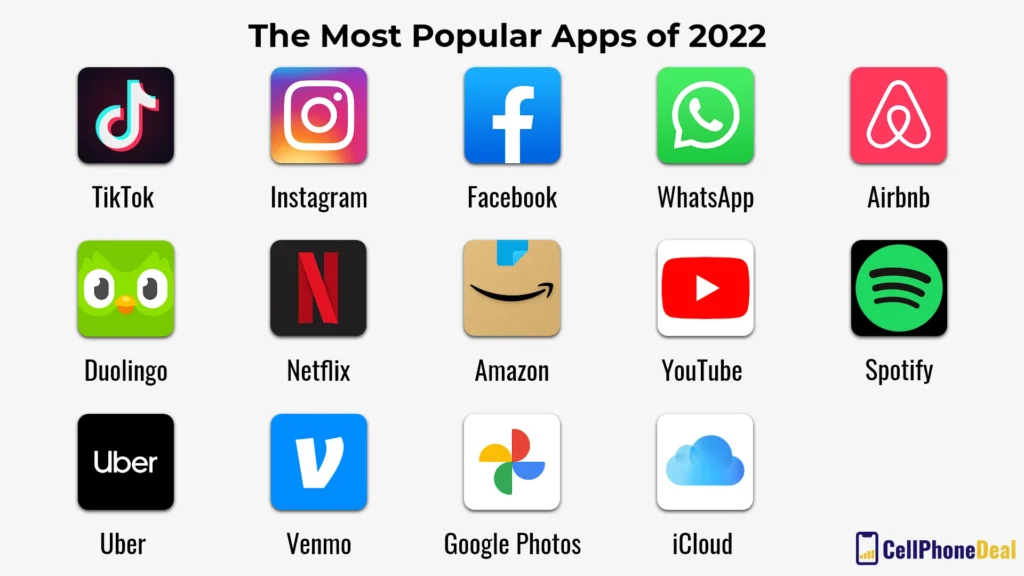In the ever-evolving landscape of digital communication, social media apps play a pivotal role in shaping how we connect, share, and engage with one another. As we delve into the topic of Social Media Apps: What’s Trending And What’s Changing, we will explore the latest trends that are capturing the attention of users worldwide. From the rise of short-form video content to the increasing popularity of niche platforms, understanding these dynamics is essential for anyone looking to navigate the social media sphere effectively.
Throughout this article, you will discover the key features that are driving user engagement and the innovative strategies that brands are employing to stay relevant. We will also examine the impact of algorithm changes, privacy concerns, and the shift towards more authentic content creation. By staying informed about these trends, you can better position yourself or your business to thrive in this competitive environment.
Moreover, we will highlight emerging platforms that are gaining traction and discuss how they differ from traditional giants like Facebook and Instagram. Whether you are a casual user, a content creator, or a marketing professional, this article will provide valuable insights that can enhance your understanding of the social media landscape. So, keep reading to uncover the trends and changes that are shaping the future of social media apps!
Social media apps have become an integral part of our daily lives, influencing how we communicate, share information, and connect with others. As technology evolves, so do these platforms, leading to new trends and changes that shape user experiences. In this article, we will explore various aspects of social media apps, focusing on what’s trending and what’s changing in this dynamic landscape.
The Rise of Short-Form Video Content
Short-form video content has taken the social media world by storm, with platforms like TikTok leading the charge. This trend has shifted the way users consume content, favoring quick, engaging videos over longer formats. The appeal lies in the ability to convey messages succinctly, making it easier for creators to capture attention in a crowded digital space.
As a result, other platforms like Instagram and YouTube have introduced their own short-form video features, such as Reels and Shorts, respectively. This shift not only enhances user engagement but also opens up new avenues for brands to connect with their audiences through creative storytelling and viral challenges.
Increased Focus on Privacy and Data Security
With growing concerns over data privacy, social media apps are under pressure to enhance their security measures. Users are becoming more aware of how their data is collected and used, prompting platforms to implement stricter privacy policies. Features like end-to-end encryption and transparent data usage disclosures are becoming standard practices.
This trend reflects a broader societal shift towards valuing personal privacy, leading to increased competition among social media platforms to offer safer environments. As users prioritize their digital safety, platforms that fail to adapt may risk losing their user base.
The Emergence of Niche Social Networks
While mainstream platforms dominate the social media landscape, niche social networks are gaining traction. These platforms cater to specific interests or communities, allowing users to connect with like-minded individuals. Examples include platforms focused on hobbies, professions, or social causes.
Niche networks provide a more personalized experience, fostering deeper connections among users. As people seek more meaningful interactions, these platforms are likely to continue growing, offering alternatives to the often overwhelming nature of larger social media sites.
Integration of E-Commerce Features
The integration of e-commerce features within social media apps is transforming how users shop online. Platforms like Instagram and Facebook have introduced shopping functionalities, allowing users to browse and purchase products without leaving the app. This seamless experience enhances user engagement and drives sales for businesses.
As social commerce continues to evolve, brands are leveraging influencer partnerships and targeted advertising to reach their audiences effectively. This trend not only benefits businesses but also provides users with a convenient shopping experience tailored to their interests.
The Role of Augmented Reality (AR)
Augmented reality (AR) is becoming increasingly popular in social media apps, enhancing user engagement through interactive experiences. Features like AR filters and effects allow users to create unique content, making their posts more visually appealing. Platforms like Snapchat and Instagram have pioneered the use of AR, setting trends that others are now following.
This technology not only entertains users but also offers brands innovative ways to engage with their audiences. By incorporating AR into marketing strategies, businesses can create immersive experiences that resonate with consumers, driving brand loyalty and awareness.
Mental Health Awareness and Digital Wellbeing
As social media usage continues to rise, so does the conversation around mental health and digital wellbeing. Many users are becoming more conscious of the impact social media can have on their mental health, leading to a demand for features that promote healthier usage habits. Platforms are responding by introducing tools that track screen time and encourage breaks.
This trend highlights the importance of fostering a positive online environment. By prioritizing user wellbeing, social media apps can create a more supportive community, ultimately enhancing user satisfaction and retention.
The Influence of Artificial Intelligence (AI)
Artificial intelligence is playing a significant role in shaping the future of social media apps. From personalized content recommendations to advanced moderation tools, AI is enhancing user experiences and improving platform efficiency. Algorithms analyze user behavior to deliver tailored content, keeping users engaged and satisfied.
Moreover, AI-driven tools are helping platforms combat misinformation and harmful content, creating safer online spaces. As technology continues to advance, the integration of AI will likely become even more prevalent, influencing how users interact with
| Trend/Change | Description | Impact |
|---|---|---|
| Short-Form Video Content | Platforms like TikTok and Instagram Reels are prioritizing short, engaging video content. | Increased user engagement and content virality. |
| Augmented Reality (AR) Features | Social media apps are integrating AR for filters and interactive experiences. | Enhanced user interaction and creative expression. |
| Privacy and Data Security | Growing concerns over data privacy are leading platforms to implement stricter policies. | Increased user trust and compliance with regulations. |
| Social Commerce | Integration of shopping features within social media platforms to facilitate direct purchases. | Boost in sales for brands and a seamless shopping experience for users. |
| Influencer Marketing Evolution | Shift towards micro and nano influencers for more authentic engagement. | Higher ROI for brands and more relatable content for audiences. |
| Focus on Mental Health | Platforms are introducing features to promote mental well-being and reduce toxicity. | Improved user experience and community health. |
| Decentralized Social Networks | Emergence of platforms that prioritize user control and data ownership. | Potential shift in user base towards privacy-focused alternatives. |



